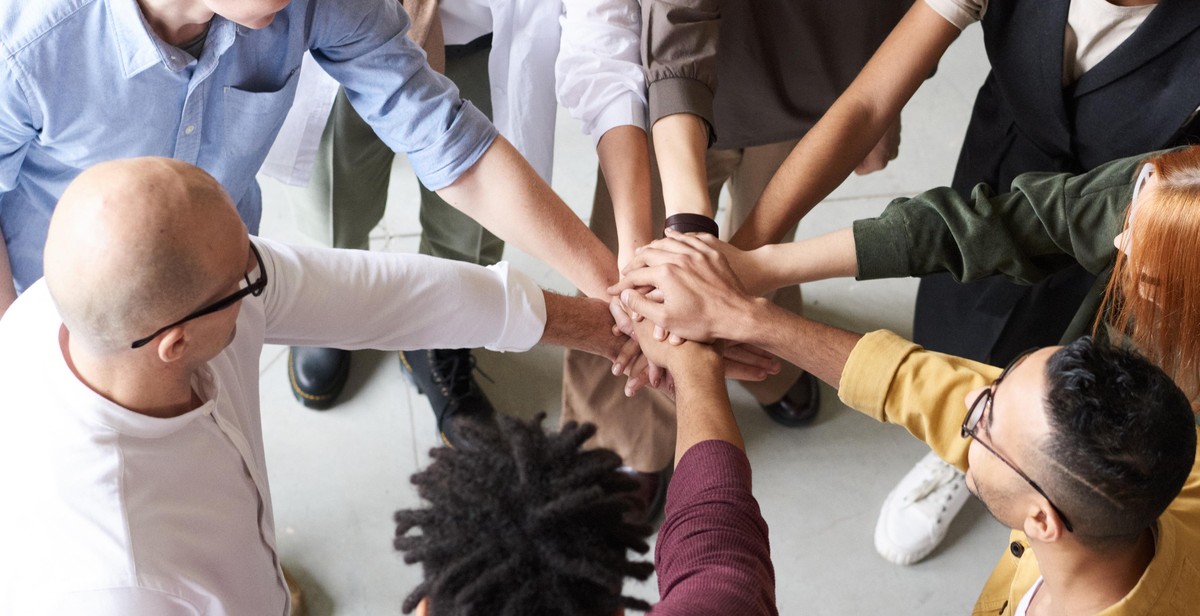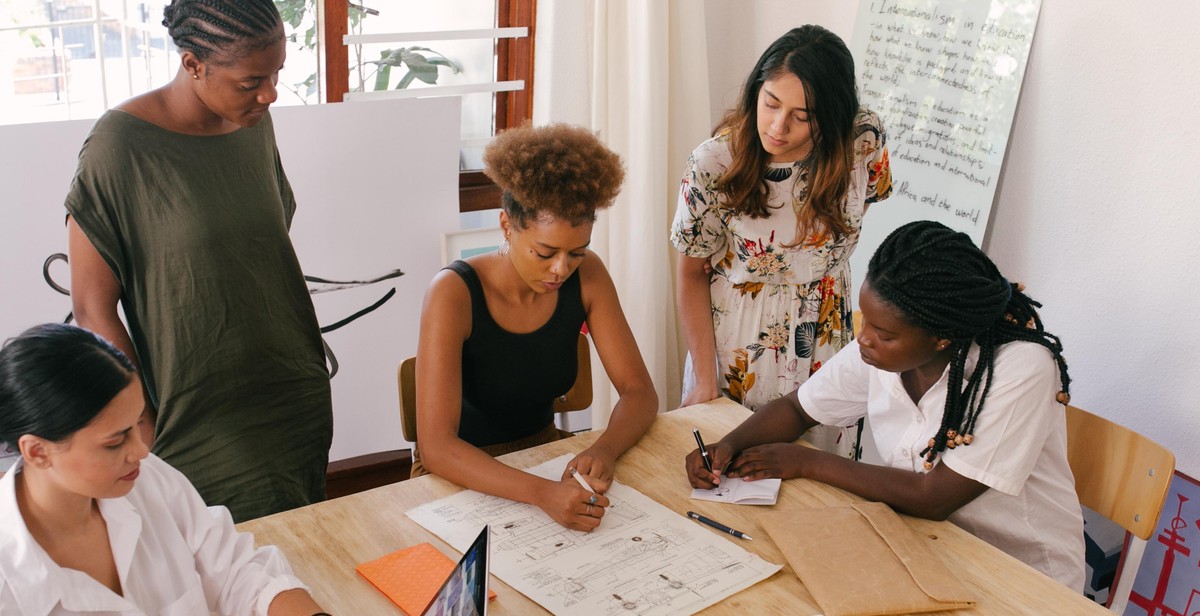How to Build Effective Teamwork in the Workplace: Fostering Collaboration and Cooperation
As a professional, I have learned that effective teamwork is crucial in the workplace. When coworkers are able to collaborate and cooperate effectively, the company’s productivity and success increase significantly. However, building effective teamwork is not always an easy task, and it requires a lot of effort and dedication from all team members.
Why Effective Teamwork is Crucial in the Workplace
Effective teamwork is crucial in the workplace for several reasons. First, it helps to increase productivity and efficiency. When employees work together as a team, they can complete tasks faster and more efficiently than if they were working individually. Additionally, effective teamwork can lead to better decision making. When team members collaborate and share their ideas, they are able to make better-informed decisions that benefit the company as a whole.
Furthermore, effective teamwork can improve workplace morale and job satisfaction. When employees feel like they are part of a team and that their contributions are valued, they are more likely to be happy and engaged in their work. This, in turn, can lead to lower turnover rates and higher employee retention.
In this article, I will share my personal experience and provide tips on how to build effective teamwork in the workplace. By fostering collaboration and cooperation, you can create a positive and productive work environment that benefits everyone involved.

Step 1: Define Roles and Responsibilities
One of the essential components in building effective teamwork in the workplace is to clarify individual roles and establish clear goals and expectations. When team members understand their roles, they can focus on their specific tasks, which contributes to the overall success of the team.
Clarify Individual Roles
Each team member should have a clear understanding of their role in the team. This includes their responsibilities, duties, and expectations. To clarify individual roles, managers can:
- Provide job descriptions that outline each team member’s responsibilities
- Hold team meetings to discuss each team member’s role and how it contributes to the overall team’s success
- Encourage team members to ask questions and seek clarification on their roles
Establish Clear Goals and Expectations
Clear goals and expectations are critical to building effective teamwork. Without clear goals, team members may not know what they are working towards, which can lead to confusion and frustration. To establish clear goals and expectations, managers can:
- Set specific and measurable goals for the team
- Communicate expectations clearly and regularly
- Provide feedback on team members’ performance towards achieving the goals
| Benefits of clarifying roles and establishing clear goals and expectations: |
|---|
| Reduces confusion and misunderstandings |
| Increases productivity and efficiency |
| Boosts team morale and motivation |
By defining roles and responsibilities and establishing clear goals and expectations, team members can work together more effectively and achieve their objectives.

Step 2: Encourage Open Communication
Effective communication is vital to building strong teamwork in the workplace. Encouraging open communication among team members creates an environment where everyone feels safe to share their ideas and concerns. Here are two ways to encourage open communication:
Create a Safe and Supportive Environment
Creating a safe and supportive environment is essential to encourage open communication. Team members should feel comfortable expressing their thoughts and ideas without fear of judgment or retribution. As a team leader, you can create a safe environment by setting clear expectations for respectful communication and modeling that behavior yourself. Encourage team members to ask questions, provide feedback, and offer suggestions for improvement. Celebrate successes and learn from mistakes together as a team.
Promote Active Listening Skills
Active listening skills are crucial for effective communication. Team members need to feel heard and understood to feel comfortable sharing their thoughts and concerns. As a team leader, you can promote active listening skills by modeling the behavior yourself. Encourage team members to listen actively by asking clarifying questions and summarizing what they have heard. Use teamwork exercises to practice active listening skills and reinforce their importance.
- Create a safe and supportive environment where team members feel comfortable sharing their thoughts and ideas.
- Promote active listening skills by modeling the behavior yourself and encouraging team members to listen actively.
By encouraging open communication, you can build a strong foundation for effective teamwork in the workplace.

Step 3: Foster Collaboration and Cooperation
One of the most important aspects of building effective teamwork in the workplace is fostering collaboration and cooperation. Encouraging collaboration over competition is essential in creating a positive working environment where team members work together towards common goals. This helps to break down silos and promotes a sense of unity within the team.
Encourage Collaboration Over Competition
Competition can be healthy, but it can also be destructive when it hinders collaboration. Encouraging collaboration over competition means emphasizing teamwork, communication, and sharing of ideas. This can be done by creating a culture that values collaboration and rewards it, providing opportunities for team members to work together, and promoting open communication channels.
Develop Interpersonal Relationships
Developing interpersonal relationships is another crucial aspect of fostering collaboration and cooperation. Team members who know and trust each other are more likely to work together effectively. This can be achieved by encouraging team members to spend time together outside of work, organizing team-building activities, and providing opportunities for social interaction.
It’s important to note that fostering collaboration and cooperation requires a commitment from everyone on the team, including management. By creating a culture that values teamwork and interpersonal relationships, and by providing opportunities for collaboration, you can build a strong and effective team that works together towards common goals.
- Encourage collaboration over competition
- Develop interpersonal relationships
- Create a culture that values teamwork and rewards collaboration
- Provide opportunities for social interaction and team-building activities
- Emphasize open communication channels

Step 4: Provide Opportunities for Professional Development
One of the best ways to build effective teamwork in the workplace is to provide opportunities for professional development. When team members are given the chance to learn new skills and grow in their roles, they become more confident and motivated. This, in turn, leads to better collaboration and cooperation.
Offer Training and Development Programs
One way to provide opportunities for professional development is to offer training and development programs. These can be in-house programs or external courses and workshops. The key is to identify the specific skills and knowledge that your team members need to improve their performance and then offer targeted training opportunities.
For example, if your team is struggling with communication, you might offer a workshop on effective communication skills. If your team is working on a new project that requires a specific technical skill, you might offer a training course on that skill.
Encourage Skill-Sharing and Cross-Training
Another way to provide opportunities for professional development is to encourage skill-sharing and cross-training. This involves team members sharing their expertise with each other and learning from one another.
You can encourage skill-sharing by setting up regular team meetings where team members can share their experiences and insights. You can also create online forums or chat groups where team members can ask questions and share knowledge.
Cross-training is another effective way to build teamwork and collaboration. This involves team members learning new skills and taking on new responsibilities outside of their usual roles. This not only helps team members to develop new skills but also gives them a better understanding of the work that other team members do.
| Option | Description |
|---|---|
| In-house training programs | Training programs developed and delivered by your organization |
| External courses and workshops | Training programs delivered by external providers |
| Skill-sharing | Team members sharing their expertise with each other |
| Cross-training | Team members learning new skills and taking on new responsibilities outside of their usual roles |
By offering training and development programs and encouraging skill-sharing and cross-training, you can provide your team members with the tools and knowledge they need to work together effectively. This will help to build a strong, collaborative team that is able to achieve its goals and deliver results.

Step 5: Celebrate Successes and Learn from Failures
One of the most important aspects of building effective teamwork in the workplace is acknowledging achievements and milestones. Celebrating successes is a great way to boost team morale and encourage continued hard work and dedication.
Acknowledge Achievements and Milestones
As a team leader, it is important to recognize and reward team members for their accomplishments. This can be done through verbal praise, written recognition, or even small tokens of appreciation such as gift cards or company swag. Celebrating team successes also fosters a sense of camaraderie and encourages team members to work together towards common goals.
Analyze Failures and Use Them as Learning Opportunities
While it is important to celebrate successes, it is equally important to learn from failures. When a project or task does not go as planned, take the time to analyze what went wrong. Encourage team members to openly discuss their thoughts and ideas on how the situation could have been handled differently. This creates a culture of learning and continuous improvement.
| Acknowledging Achievements | Analyzing Failures |
|---|---|
|
|
By celebrating successes and learning from failures, you can build a stronger, more effective team that is better equipped to handle challenges and achieve success.

Conclusion
Effective teamwork is crucial for the success of any workplace. By fostering collaboration and cooperation, teams can achieve goals faster and more efficiently than individuals working alone. Building effective teamwork requires a combination of communication, trust, and respect.
Start by setting clear goals and expectations for your team. Encourage open communication and active listening to ensure everyone is on the same page. Build trust by being transparent and accountable for your actions. Recognize the strengths and weaknesses of each team member and assign tasks accordingly.
Remember that effective teamwork is an ongoing process, and it requires effort and commitment from everyone involved. Encourage your team to continuously improve by providing feedback and opportunities for growth.
By building effective teamwork in the workplace, you can create a positive and productive work environment where everyone feels valued and supported. So, take the time to invest in your team and watch as they achieve great things together.
Key Takeaways:
- Effective teamwork is essential for workplace success
- Communication, trust, and respect are crucial for building effective teamwork
- Set clear goals and expectations, encourage open communication, and recognize the strengths and weaknesses of each team member
- Effective teamwork is an ongoing process that requires effort and commitment from everyone involved
| Pros | Cons |
|---|---|
| Increased productivity | Requires effort and commitment from everyone involved |
| Improved communication | May take time to establish trust and respect among team members |
| Enhanced collaboration | May require additional resources for team building activities and training |
Overall, the benefits of effective teamwork outweigh the challenges. By investing in your team and building a collaborative work environment, you can achieve great things together.
